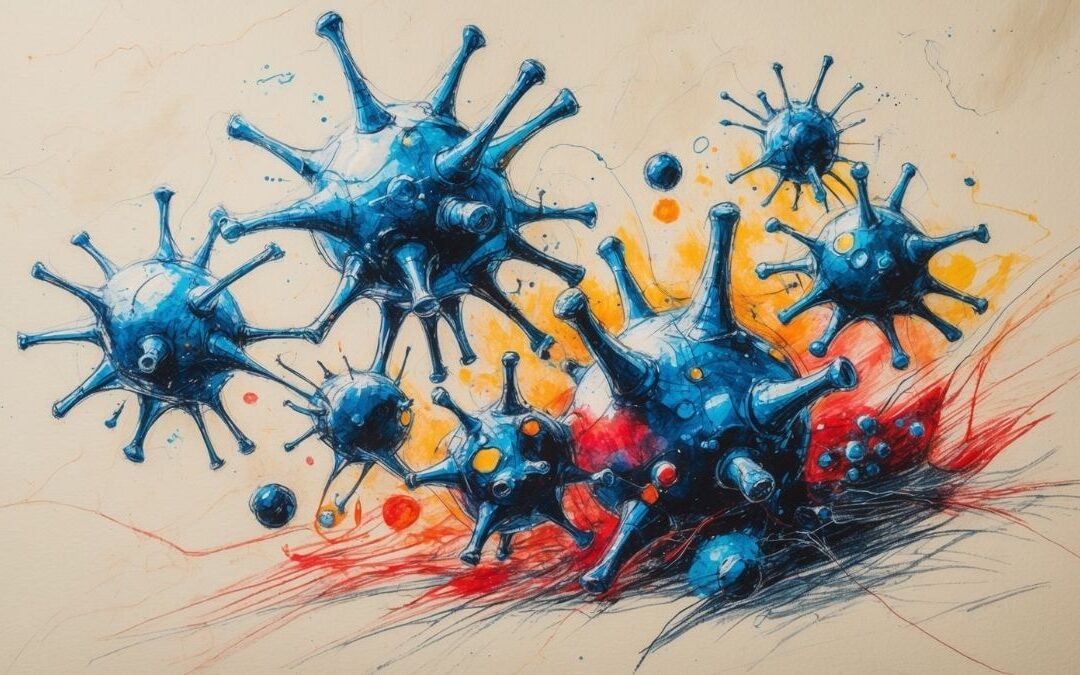- The Role of Humor in Stress Management
- The Psychological Power of Humor
- Physiological Benefits and Stress Reduction
- Humor in Daily Life: A Practical Perspective
- Humor as a Tool for Building Resilience
- The Role of Self-Deprecation and Irony
- Integrating Humor into Stress Management Practices
- The Cultural Dimensions of Humor
- Humor in the Age of Technology
- The Limitations and Potential Pitfalls
- Conclusion
- Reading Comprehension Quiz
- Let’s Talk | Listening
- Listening Comprehension Quiz
- Let’s Learn Vocabulary in Context
- Vocabulary Quiz
- Let’s Discuss & Write
- Let’s Play & Learn
The Role of Humor in Stress Management
In a world that often seems inundated with tension, deadlines, and the unrelenting pace of modern life, humor emerges as a refreshing antidote to stress. It is more than just a frivolous escape—it is a potent coping mechanism that can transform our outlook on adversity. This article delves into the multifaceted role of humor in stress management, examining its psychological and physiological benefits, its applications in everyday life, and its power to foster resilience even in the most challenging circumstances.
The Psychological Power of Humor
Humor has long been recognized as a form of psychological defense. When faced with stressful situations, the ability to laugh—even at oneself—can help reduce anxiety and create a mental distance from the problem at hand. The process of laughing triggers the release of endorphins, the body’s natural “feel-good” hormones, which in turn promote a sense of well-being and relaxation. This mental shift is not merely a distraction; it is a deliberate, adaptive response that recalibrates our emotional state, allowing us to face difficulties with a clearer mind.
Moreover, humor has a unique way of reframing negative experiences. By finding the absurdity or irony in a situation, individuals can challenge their own perspectives and reduce the impact of stressors. This cognitive shift—seeing stress as less threatening—enables one to approach challenges with a more balanced and optimistic mindset. In essence, humor is a form of cognitive reappraisal, allowing us to reinterpret the events of our lives in a less distressing light.
Physiological Benefits and Stress Reduction
Beyond the psychological advantages, humor carries significant physiological benefits. Laughter has been shown to lower blood pressure, improve immune function, and reduce the physical symptoms of stress. When we laugh, our heart rate increases momentarily, followed by a period of muscle relaxation. This natural cycle mimics the effects of physical exercise, promoting circulation and reducing the buildup of tension in the body.
Scientific research supports the notion that humor and laughter can serve as natural stress relievers. Studies have indicated that laughter therapy sessions can significantly decrease stress hormones, leading to improved overall health. For individuals battling chronic stress, incorporating humor into daily routines may serve as a non-invasive and cost-effective strategy to improve both mental and physical well-being.
Humor in Daily Life: A Practical Perspective
In everyday life, humor manifests in countless forms—stand-up comedy, witty banter among friends, amusing anecdotes, or even the playful use of self-deprecation. The beauty of humor is its universality; regardless of one’s background, a well-timed joke or a humorous perspective on a difficult situation can unite people in shared relief and laughter.
One practical example of humor’s utility can be seen in the workplace. In high-pressure environments, managers who use humor to diffuse tension often find that it not only improves morale but also enhances team cohesion. A well-timed quip during a stressful meeting can break the ice, encouraging creative problem-solving and reducing the perceived severity of the issues at hand.
Humor also plays a critical role in interpersonal relationships. Sharing a laugh can bridge gaps between individuals, foster empathy, and build a sense of community. When people laugh together, they momentarily set aside their differences, uniting over a common human experience. This social aspect of humor is vital, particularly in times of collective stress or crisis, as it reinforces the bonds that help communities weather adversity.
Humor as a Tool for Building Resilience
Resilience—the capacity to recover from difficulties—is a quality that is increasingly valued in our rapidly changing world. Humor contributes significantly to building resilience by offering a way to process and cope with life’s inevitable setbacks. It encourages a mindset that is flexible and open to change, helping individuals to bounce back after failure or disappointment.
By finding humor in hardship, one can develop a sense of perspective that diminishes the emotional weight of setbacks. This does not mean trivializing serious issues but rather acknowledging that even in dire circumstances, there is room for lightheartedness and hope. The resilient individual understands that laughter is a sign of strength—a declaration that while challenges are real, they are not insurmountable.
The Role of Self-Deprecation and Irony
A particular form of humor that has garnered attention in stress management is self-deprecation. When used judiciously, self-deprecating humor allows individuals to confront their own imperfections and vulnerabilities in a non-threatening manner. It is a way of saying, “I may not have it all together, but I can laugh at myself, and that makes life a little easier.” This acceptance of one’s flaws not only reduces self-imposed pressure but also humanizes us in the eyes of others, fostering connection and understanding.
Irony, too, plays an important role in managing stress. The ability to perceive and appreciate the ironies of life—to recognize that sometimes events unfold in unexpectedly humorous ways—can be a powerful antidote to the severity of stress. It teaches us that life is full of contradictions and that these contradictions often contain a kernel of truth about the human experience.
Integrating Humor into Stress Management Practices
So how can one actively integrate humor into a daily stress management routine? The answer lies in cultivating a habit of lightheartedness. Here are some practical strategies:
- Mindful Observation: Pay attention to the humorous aspects of everyday life. Notice the absurdities in routine situations, and allow yourself to laugh at them.
- Humor Journaling: Keep a journal of funny experiences, jokes, or observations. Over time, this collection can serve as a personal repository of moments that lift your spirits during challenging times.
- Social Engagement: Surround yourself with individuals who appreciate humor. Whether through watching comedies or engaging in playful banter, social interactions infused with laughter can be incredibly restorative.
- Humorous Reflection: When faced with a stressful event, try to view it through a humorous lens. Ask yourself, “What is the funny side of this?” or “How might I look back on this situation and laugh?”
The Cultural Dimensions of Humor
It is important to acknowledge that humor is culturally nuanced. What one person finds amusing, another might not. Cultural context shapes our perceptions of humor, and stress management techniques that work in one cultural setting may need to be adapted in another. Nonetheless, the universality of laughter—as a spontaneous expression of relief and joy—remains a common thread across diverse cultural landscapes.
Understanding these cultural differences can enhance our appreciation of humor as a global coping mechanism. By learning about different styles of humor—from the dry wit of British comedy to the exuberant slapstick of certain Eastern traditions—we can enrich our own repertoire of stress-relief strategies. This cultural exchange not only broadens our horizons but also deepens our empathy for others, reminding us that humor, in all its forms, is a shared human experience.
Humor in the Age of Technology
In today’s digital era, humor has found new platforms in social media, memes, and online video. These digital expressions of wit have democratized humor, allowing people from all walks of life to share a laugh in seconds. While this rapid-fire form of humor may sometimes lack the depth of traditional jokes, it nonetheless serves as a quick relief in moments of stress. However, it is crucial to balance digital humor with face-to-face interactions, as the latter offers a more nuanced and emotionally resonant form of laughter.
The Limitations and Potential Pitfalls
Despite its many benefits, humor is not a panacea for all stress. In some cases, forced humor or inappropriate jokes can exacerbate tension or alienate those who are already vulnerable. It is essential to approach humor with sensitivity and awareness of context. Misplaced or offensive humor can inadvertently reinforce stress rather than alleviate it. Therefore, the key lies in authenticity—allowing humor to arise naturally rather than contriving it as a mere tactic.
Conclusion
Humor is an indispensable tool in the arsenal of stress management. Its ability to shift perspectives, ease physiological tension, and foster human connection makes it a unique and powerful asset in our daily lives. By embracing laughter, we not only mitigate the effects of stress but also cultivate resilience and a more joyful outlook on life. As you navigate the challenges of your own life, consider how you might incorporate humor into your routine. Whether it is through a funny movie, a playful conversation, or a moment of self-deprecating wit, allow yourself to laugh—and in doing so, discover a path to a healthier, more balanced existence.
Reading Comprehension Quiz
Let’s Talk | Listening
Listening Transcript: Please do not read the transcript before you listen and take the quiz
Let’s talk about humor and stress—two concepts that might seem at odds with each other at first glance, but when examined closely, reveal a harmonious interplay that can enrich our daily lives. Imagine a scenario where you’re overwhelmed by deadlines or facing a series of setbacks that seem insurmountable. In moments like these, have you ever caught yourself chuckling at the irony of the situation? That unexpected burst of laughter can be a lifeline, a momentary reprieve that helps you step back and gain perspective.
I recall a time when, during a particularly challenging project, everything that could go wrong did go wrong. Instead of spiraling into despair, one of my colleagues broke the tension by pointing out the absurdity of our predicament. Her well-timed joke wasn’t just a relief; it was a catalyst for a shift in our mindset. Suddenly, the mountain of problems seemed less daunting because we could laugh at the situation. It was as if humor had unlocked a door to resilience, allowing us to tackle the challenges with a renewed sense of energy and creativity.
In these conversations, humor is not simply a fleeting distraction; it is a deliberate choice—a way to invite joy into even the most stressful moments. Consider the practical applications of this approach. When stress mounts, we often become trapped in a cycle of negative thoughts, replaying worries over and over again. By contrast, humor acts as a reset button. It interrupts the cycle, breaks the momentum of negativity, and replaces it with something lighter, something that encourages us to see beyond the immediate problem.
Have you ever noticed that sharing a laugh with someone can create an instant bond? That shared moment of levity doesn’t just relieve individual stress—it fosters connection and community. Whether it’s a playful exchange with a friend or a spontaneous quip during a challenging meeting, humor has a remarkable way of uniting people. It reminds us that we’re not alone in our struggles; others are also finding ways to cope, and sometimes, all it takes is a shared smile to build that bridge.
I find it fascinating how humor also invites self-reflection. When we laugh at ourselves, we acknowledge our imperfections without being overwhelmed by them. It’s a form of self-compassion—a gentle reminder that it’s okay not to be perfect. In those moments, humor allows us to accept our limitations while celebrating our capacity to overcome them. Think about a time when you managed to laugh at a personal mistake. That moment likely brought not only relief but also a sense of empowerment. You realized that you were more than your errors, and that resilience comes in many forms.
Yet, there is another side to this conversation. While humor can be a powerful tool, it must be handled with care. Not every stressful situation is a laughing matter, and what might be funny in one context could be hurtful in another. The key is sensitivity—knowing when humor is appropriate and when it might inadvertently trivialize someone’s experience. This is a subtle art that requires us to tune into both our own emotions and those of others.
So, let’s challenge ourselves with a question: How can you use humor in a way that is both genuine and respectful? The answer may lie in finding a balance between levity and seriousness, recognizing that laughter is most effective when it arises naturally. Perhaps it’s through small daily practices, like watching a funny clip during a break or sharing a lighthearted story with a coworker. Or maybe it’s about creating moments of humor in group settings, where everyone feels safe enough to laugh together.
Reflecting on these ideas, I invite you to consider your own relationship with humor. What role does it play in your life? How do you use laughter as a tool to navigate stress? There is no one-size-fits-all answer, but the beauty lies in the variety of ways humor can manifest—whether it’s a subtle smile in a moment of introspection or an outright burst of laughter shared among friends.
Let’s talk about practical applications as well. In times of stress, actively seeking out humor can become a part of your routine. You might start your day with a funny podcast or end it by reading a humorous anecdote. Over time, these practices can build a reserve of positive energy that you can draw upon when challenges arise. Moreover, by encouraging those around you to embrace humor, you contribute to a more supportive and resilient community. After all, resilience is not just an individual trait—it is something that can be nurtured collectively.
Another intriguing aspect is the cultural dimension of humor. Different communities have unique ways of expressing wit and levity. Have you ever wondered how humor varies from one culture to another and what that can teach us about resilience? By exploring diverse comedic styles, we not only expand our own sense of humor but also develop empathy and understanding for others. This cultural exchange can be a source of strength, especially in a globalized world where stress is a common denominator.
As we continue this conversation, I encourage you to experiment with humor in your own life. Try to observe moments when laughter naturally arises and reflect on what triggers that response. Ask yourself: Is it the absurdity of a situation, a clever play on words, or perhaps a moment of shared vulnerability? By becoming more mindful of these triggers, you can learn to harness humor as a strategic tool for stress management.
In closing, remember that humor is more than just a fleeting escape—it is a vital ingredient for building resilience, forging connections, and ultimately living a more balanced life. Next time you feel overwhelmed, pause for a moment and see if you can find something, however small, that brings a smile to your face. It might just be the spark that lights your way through a challenging day.
Listening Comprehension Quiz
Let’s Learn Vocabulary in Context
In exploring the role of humor in stress management, several key words emerge that not only define this process but also enrich everyday language. When you hear the word “cognitive reappraisal,” think of it as the process of looking at a stressful situation from a different angle—a way of finding the hidden humor or irony in the chaos of daily life. “Endorphins” are another essential term; these are the body’s natural chemicals released when we laugh, giving us a natural boost of happiness and energy. Similarly, “resilience” is the remarkable ability to bounce back from setbacks, much like how a well-timed joke can help you overcome a moment of despair.
Now, consider “levity.” This word embodies the lightness that humor brings into our lives, easing the heaviness of stress. When we practice “mindfulness,” we become more aware of the present moment, often noticing the humorous nuances in the mundane. This mindfulness enables us to appreciate “self-deprecation,” a form of humor where we gently laugh at our own imperfections, thereby reducing self-criticism and opening the door to self-acceptance.
Another important term is “reframing.” In the context of humor, reframing involves shifting your perspective so that challenges appear less daunting and more manageable. This mental shift can be empowering, turning obstacles into opportunities for laughter. “Empathy” also plays a role in this dynamic, as sharing a laugh with someone can build a bridge of understanding and support between individuals. Alongside empathy, “social cohesion” describes how humor can bond groups together, fostering a sense of community and mutual support.
In everyday conversations, these words—cognitive reappraisal, endorphins, resilience, levity, mindfulness, self-deprecation, reframing, empathy, and social cohesion—provide powerful tools for expressing how humor alleviates stress. They remind us that humor is not merely a superficial distraction but a meaningful, transformative process that impacts our mental and physical well-being. When you next encounter a stressful moment, try to recall these terms and see how they apply to your experience. Perhaps you’ll notice that your ability to engage in reframing helps you see a difficult situation in a new light, or that the levity in a shared joke brings a sense of relief and connection.
By integrating these words into your daily vocabulary, you begin to see that humor is a versatile tool—not only for stress management but for enriching your overall communication. Imagine telling a friend, “I used a bit of self-deprecation to lighten the mood today,” and watching how that honesty fosters an authentic bond. Over time, this practice can transform your interactions, encouraging a culture where challenges are met with a spirit of resilience and mutual support.
Moreover, as you reflect on these vocabulary words, consider how they play out in real-life scenarios. When you laugh at yourself, you are engaging in self-deprecation in a healthy way. When you notice the small ironies in life and shift your perspective, you are practicing cognitive reappraisal. These words then become more than definitions; they evolve into practical tools that you can use to articulate your experiences and to encourage others to adopt a more balanced approach to stress.
In sharing these insights with others, you contribute to a collective understanding of how humor not only alleviates stress but also enhances our quality of life. Embracing these terms in conversation can spark discussions about the transformative power of laughter, leading to deeper reflections on how to cultivate a resilient mindset. Ultimately, by weaving these vocabulary words into our daily language, we equip ourselves with a richer, more precise way of describing our emotional journeys—a journey in which humor plays a central, uplifting role.
Vocabulary Quiz
Let’s Discuss & Write
Discussion Questions:
- How do you personally incorporate humor into stressful situations, and what effects have you observed?
- In what ways can humor bridge cultural or generational gaps during challenging times?
- Can humor ever be inappropriate in stress management, and how do you determine the line?
- What are some creative methods you’ve seen or used to integrate humor into daily routines?
- How do you think the balance between humor and seriousness impacts personal resilience?
Writing Prompt:
Reflect on an experience where humor significantly altered your perspective during a stressful period. Write a short essay (300–500 words) describing the situation, the role that humor played, and the outcome. In your essay, consider including phrases like “I found solace in laughter when…” or “The moment I embraced humor, I realized…” to guide your narrative. Focus on explaining how humor helped you reframe the situation and what lessons you learned about resilience and connection. Use specific examples to support your reflections.










0 Comments